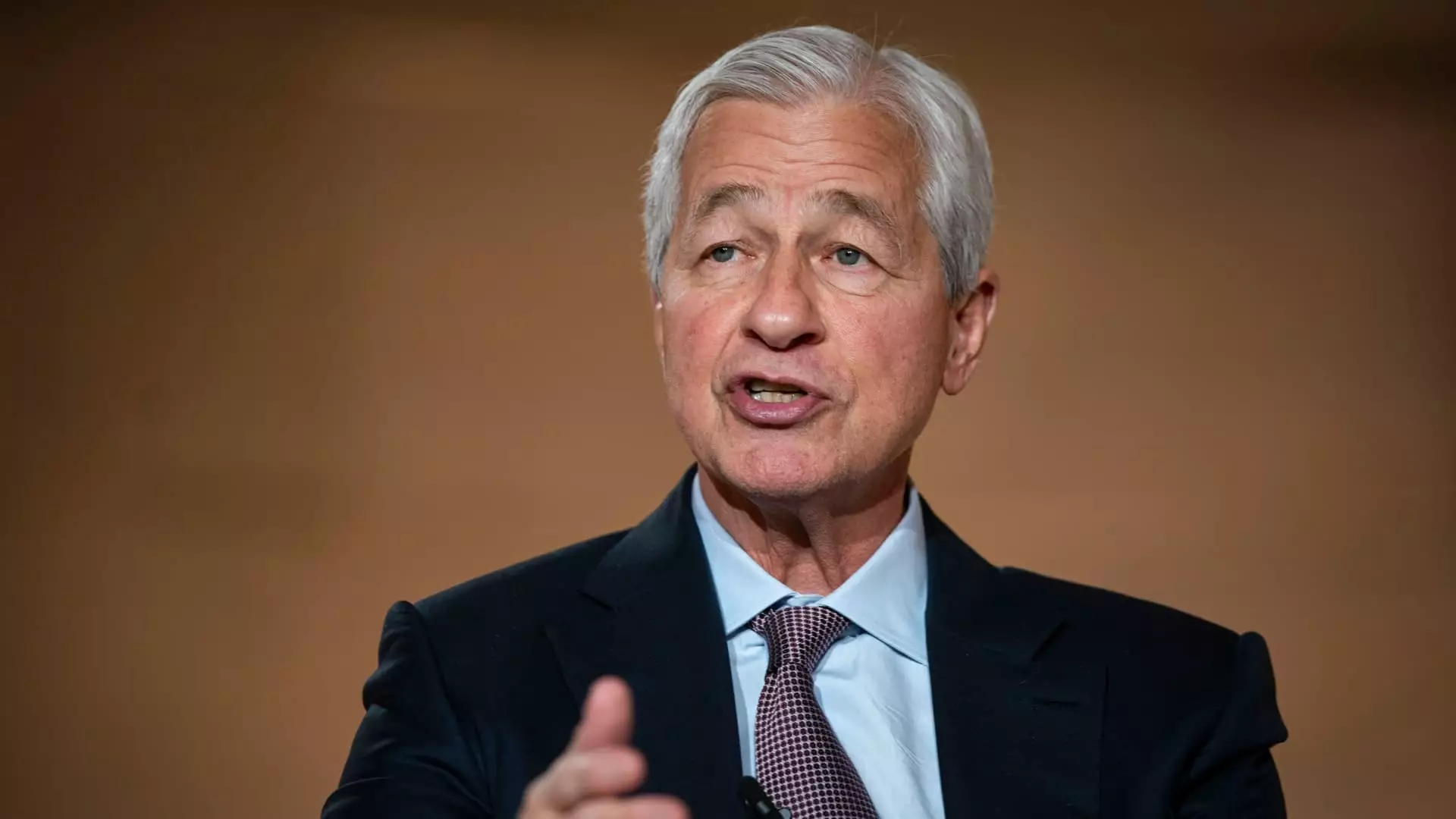In an era where the political and economic landscapes intersect like never before, the voice of corporate leaders is becoming increasingly influential. Jamie Dimon, the CEO of JPMorgan Chase, recently broke from the pack by delivering a sharp critique of President Donald Trump’s newly announced tariffs in his annual shareholder letter. While many may see tariffs as a necessary tool to protect American interests, Dimon’s insights raise alarms that every American should ponder. The weight of his analysis reveals an economy on shaky ground, perilously close to turbulence that could have lasting repercussions.
Tariffs: A Double-Edged Sword
Dimon is unequivocal about the inflationary impacts of tariffs, saying they will elevate prices on both imported and domestic goods. This assertion should send chills down the spine of anyone who has recently filled their grocery cart or refueled their vehicle. Tariffs are often described as a form of economic protectionism, but in reality, they may turn out to be an economic boomerang—aimed at foreign competitors but hitting American consumers hard. Dimon warns of rising input costs, suggesting that while the rationale behind tariffs may be rooted in protecting local jobs, the unintended consequence could be a higher cost of living for the very citizens these policies aim to protect.
The Vulnerability of Growth
While there is still debate about whether tariffs could precipitate a recession, the reality Dimon paints is one of stagnation. He believes that we are on the brink of slower economic growth, a notion that resonates with recent economic indicators. The fact that Dimon has chosen to speak out against tariffs—particularly after previously supporting economic measures that align with America’s national security—shows a deepening concern that the current political climate is not conducive to sustainable growth. If the economy was already showing signs of wear even before these tariff announcements, it begs the question: How much more strain can it endure?
The Impact on Global Markets
Dimon underscores the confusion and uncertainty that Trump’s tariff policy injects into global markets. The financial reaction to the tariffs was immediate—stocks plummeted considerably. Dimon’s experience in managing large-scale financial operations puts him in a unique position to comment on these issues, and his analysis suggests a far-reaching impact. When the world’s largest economy wobbles, it sends shockwaves through international markets. We should be acutely aware that as uncertainty breeds volatility, foreign investors could pull back from U.S. markets, making the situation even more untenable. The reality Dimon highlights is one of interconnectedness; the failings of one market can easily lead to failures in others.
Cumulative Negativity: The Straws on the Camel’s Back
One of Dimon’s most salient points relates to the cumulative nature of negativity this tariff policy introduces. It’s not merely that tariffs act as an immediate weight on the economy; Dimon cautions that their long-term effects could deepen the economic malaise. Already weakened by high fiscal deficits and a volatile asset market, the U.S. economy is vulnerable. If tariffs continue to stack pressure upon an already ailing economy, we risk moving beyond stagnation into a recession—a deeply unsettling prospect that should prompt decisive action from policymakers.
Dimon’s Vision for the Future
Interestingly, despite being cautious about Trump’s tariff policy, Dimon also affirms several of the president’s priorities. He recognizes the importance of addressing trade imbalances and immigration issues but stresses that this requires reform rather than retaliation. Dimon argues for strengthening the global economic order rather than abandoning it. He highlights a dangerous path toward multipolarity, advocating for a unified approach that maintains America’s leadership role—an essential commentary in today’s increasingly fragmented global landscape.
In essence, Dimon calls for a revival of civic pride and collaboration to deal with systemic issues. To merely throw up trade barriers is to ignore the larger problems at hand. Only through a prescription of deep reform and maintaining relationships with our global allies can we navigate the choppy waters ahead.
Dimon’s letter serves as a stark reminder that leaders in both business and politics need to approach economic policy with foresight and restraint. If we are to emerge from these trials stronger, we must heed the warnings of those at the helm of great institutions. The onus is on us not just to critique, but to implement solutions that ensure the long-term health of our economy and, subsequently, the future of our society as a whole.

